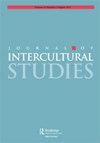贫民窟遗产实践:里约热内卢女性战士争取政治记忆和社会正义的斗争
IF 1
Q3 SOCIOLOGY
引用次数: 0
摘要
这篇文章讨论了里约热内卢贫民窟的日常空间遗产实践。它关注贫民窟的经历,贫民窟的黑人和贫穷妇女居民,因为他们建造自己的房子,并在城市中争取政治记忆。基于2011-2013年和2018年对pav本文章由计算机程序翻译,如有差异,请以英文原文为准。
Favela Heritage Practices: Women Warriors’ Struggles for Political Memory and Social Justice in Rio de Janeiro
This article discusses everyday spatial heritage practices in Rio de Janeiro’s favelas. It focusses on the experiences of faveladas, Black and poor women residents of the favelas, as they build their houses and struggle for political memory in the city. Based on ethnographic fieldwork and photowalks conducted in 2011–2013 and 2018 with residents of the favelas of Pavão-Pavãozinho and Cantagalo (PPG), this article documents the insurgent heritage practices of ‘women warriors’ and analyses the ways in which these practices typify means of resistance to urban coloniality. I draw on theories by the Afro-Brazilian feminist scholars and activists Beatriz Nascimento on quilombos (maroon communities) and Lélia Gonzalez on ‘Amefricanity’, who recourse to black and indigenous women’s Southern Atlantic experiences of oppression and forced migration and of resistance, to suggest the notion of ‘Amefrican’ heritage practices. The women warriors’ spatial practices and resistance encompass curated favela heritage. They challenge prejudice against the favelas and Afro-Brazilians, thereby sustaining ‘Amefrican’ heritage practices and shaping Rio de Janeiro’s cultural heritage and future, especially against contemporary processes of urban coloniality.
求助全文
通过发布文献求助,成功后即可免费获取论文全文。
去求助
来源期刊

Journal of Intercultural Studies
SOCIOLOGY-
CiteScore
1.80
自引率
10.00%
发文量
67
期刊介绍:
Journal of Intercultural Studies showcases innovative scholarship about emerging cultural formations, intercultural negotiations and contemporary challenges to cultures and identities. It welcomes theoretically informed articles from diverse disciplines that contribute to the following discussions: -Reconceptualising notions of nationhood, citizenship and belonging; -Questioning theories of diaspora, transnationalism, hybridity and ‘border crossing’, and their contextualised applications; -Exploring the contemporary sociocultural formations of whiteness, ethnicity, racialization, postcolonialism and indigeneity -Examining how past and contemporary key scholars can inform current thinking on intercultural knowledge, multiculturalism, race and cultural identity. Journal of Intercultural Studies is an international, interdisciplinary journal that particularly encourages contributions from scholars in cultural studies, sociology, migration studies, literary studies, gender studies, anthropology, cultural geography, urban studies, race and ethnic studies.
 求助内容:
求助内容: 应助结果提醒方式:
应助结果提醒方式:


